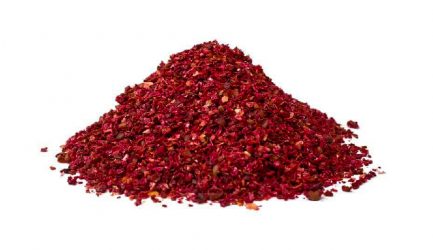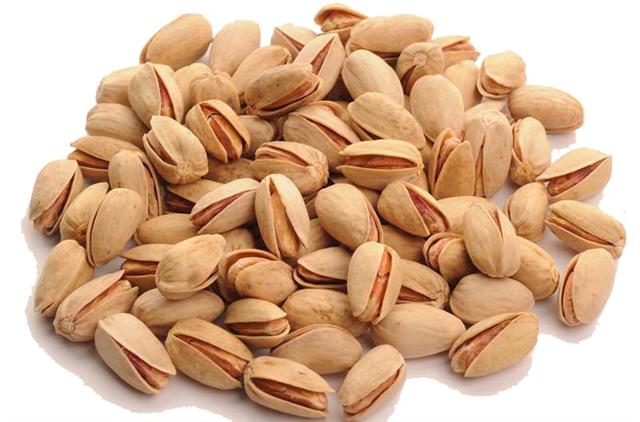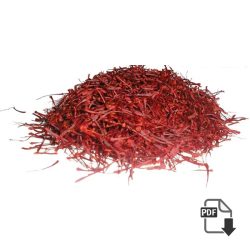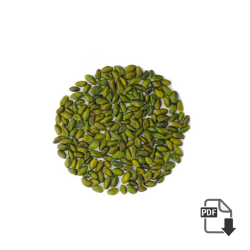A Powerful Spice for Health and Flavor
Sumac, a deep red spice with a tangy, lemony flavor, is a staple in Middle Eastern and Mediterranean cuisine. While it’s widely known for its culinary uses, sumac also boasts an impressive range of health benefits. Packed with antioxidants and other beneficial compounds, sumac can boost your health while adding bold flavor to your dishes. In this article, we’ll explore the numerous benefits of sumac and why it should be a regular part of your diet.

What is Sumac?
Sumac comes from the dried and ground berries of the Rhus plant, which grows in various regions across the Mediterranean and the Middle East. The spice is known for its vibrant red color and its tart, citrus-like flavor, which makes it a versatile ingredient for seasoning meats, salads, and more. Beyond its culinary uses, sumac is celebrated for its medicinal properties and has been used in traditional remedies for centuries.
Rich in Antioxidants
One of the key health benefits of sumac is its high concentration of antioxidants. Antioxidants are crucial for protecting the body from oxidative stress and free radical damage, which can lead to chronic diseases like heart disease, cancer, and diabetes. Sumac is particularly rich in flavonoids and tannins, powerful antioxidants that help combat inflammation and promote overall health.
Supports Heart Health
Sumac has been shown to support heart health in several ways. Its antioxidant properties help reduce inflammation in the blood vessels, which can lower the risk of cardiovascular issues. Sumac also contains potassium, which helps regulate blood pressure by balancing sodium levels in the body. Regular consumption of sumac may help improve heart function and reduce the risk of heart-related conditions.
Anti-Inflammatory Properties
Sumac is a natural anti-inflammatory agent. Chronic inflammation is a leading cause of many health problems, including arthritis, diabetes, and heart disease. The antioxidants in sumac, particularly quercetin, have strong anti-inflammatory effects that help reduce swelling and discomfort in the body. This makes sumac a valuable addition to an anti-inflammatory diet.
Aids in Digestion
Sumac is also known for its ability to promote healthy digestion. Its tangy taste helps stimulate digestive enzymes, which can improve the breakdown and absorption of nutrients in the stomach. Additionally, sumac’s natural astringent properties can help with indigestion and relieve symptoms of an upset stomach. Drinking sumac-infused water or adding spice to meals can help soothe digestive discomfort and improve gut health.
Culinary Uses of Sumac
Sumac is not only healthy but also incredibly versatile in the kitchen. It adds a unique, tangy flavor to both sweet and savory dishes, making it an essential spice in many cuisines. Here are a few popular ways to use sumac in cooking:
As a Flavor Enhancer
Sumac’s lemony flavor makes it a great alternative to citrus in recipes. You can sprinkle it over salads, roasted vegetables, and grilled meats for a burst of acidity. It’s often used as a key ingredient in the spice blend za’atar, a popular Middle Eastern seasoning. Whether you’re marinating chicken or garnishing a salad, sumac can elevate the taste of your dishes.
Sumac in Beverages
Sumac can also be used to create refreshing drinks. In traditional Middle Eastern cultures, sumac tea is consumed for its cooling and digestive properties. You can steep sumac in hot water to make a tangy tea or mix it with cold water for a refreshing summer drink. Sumac lemonade, with a hint of spice, is another delicious option.
sumac ( origin pictures plant powder medicine benefits )
Natural Food Preservative
Beyond flavor, sumac acts as a natural preservative. Its antimicrobial properties help extend the shelf life of foods. This makes sumac an excellent choice for seasoning meats or adding to marinades, where it can both enhance flavor and help keep food fresh.







 3 kind raisin
3 kind raisin 


